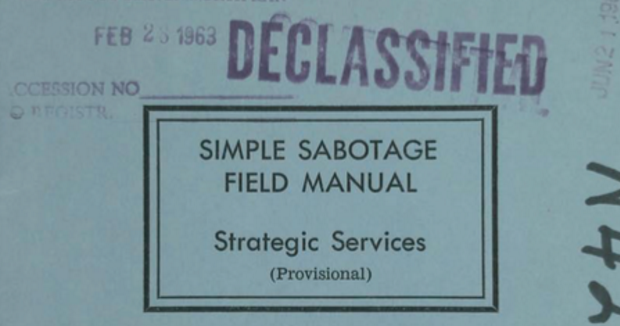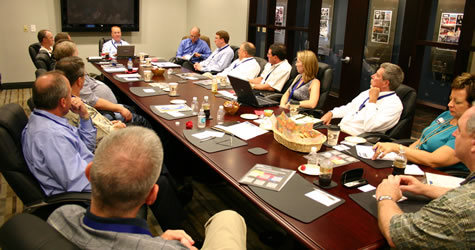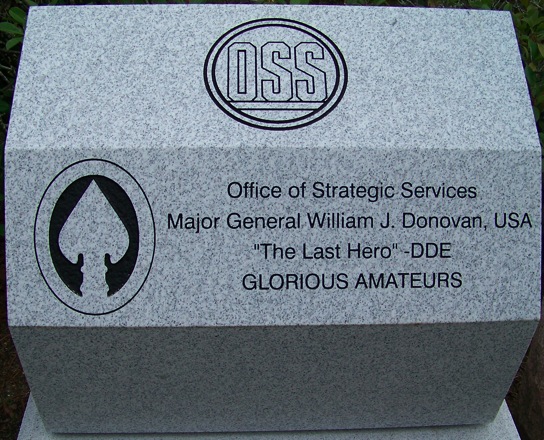The behaviours recommended below struck me as standard operating procedure on every university committee i have endured. Having experienced everything on the list, little did I know each instance was part of a whole strategy to undermine the joint. Little did I know. Ain’t it the truth!
These excepts come from an Office of Strategic Services (OSS) manual distributed during World War II to Allied sympathisers in Nazi occupied Europe. It shows these friends how to gum up the works while remaining safe. For those born without a history gland, the OSS was the immediate predecessor of the CIA.

If there is popular demand I will post the next part which concerns how managers can destroy the place while remaining lily-white. It, too, reminded me of some with whom I have worked.
On committees:
(1) Insist on doing everything through channels. Never agree to a short-cut to expedite action.
(2) Make speeches. Talk as frequently as possible and at great length. Illustrate your points.. by long anecdotes and accounts of personal experiences. Invoke the need for standards often.

(3) When possible, refer all matters for further study and consideration.
(4) Make all committees as large as possible so that they are representative, and to insure there is never agreement.
(5) Haggle over precise wordings of communications, minutes, and resolutions.
(6) Refer back to matters decided upon at the last meeting and attempt to re-open previous decisions and actions.
(7) Urge fellow-conferees to be “reasonable” and avoid haste which might result in embarrassments or difficulties later.
(8) Raise the propriety of any decision because it might lie within the jurisdiction of another element.

The genius of OSS was William Donovan, known as Wild Bill. Thus reminded of this protean figure, I think will find a biography of him.
Skip to content
